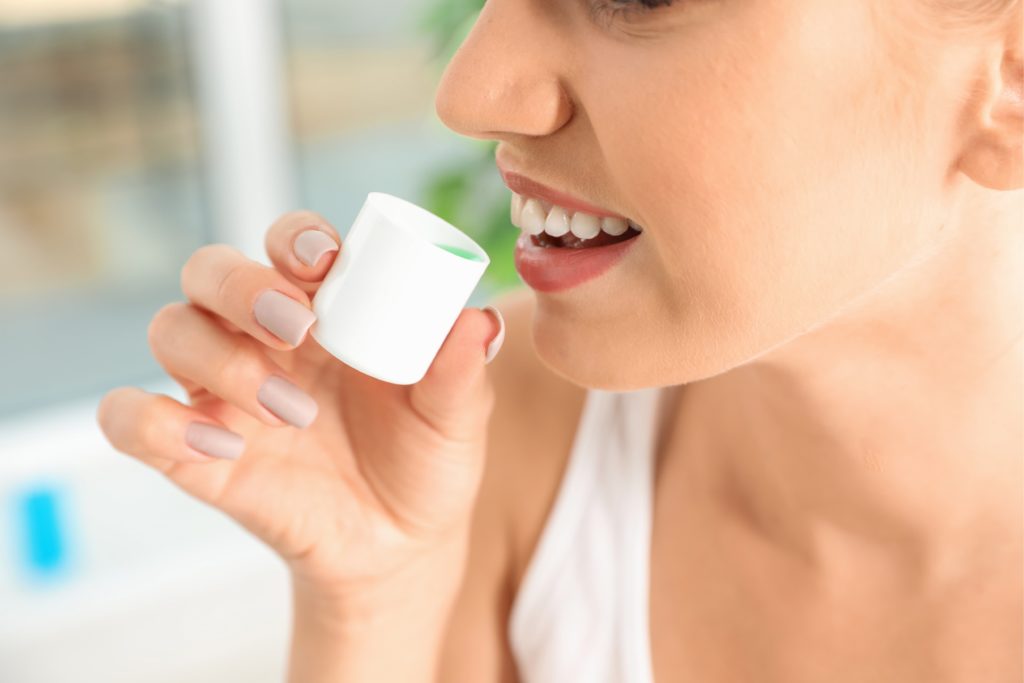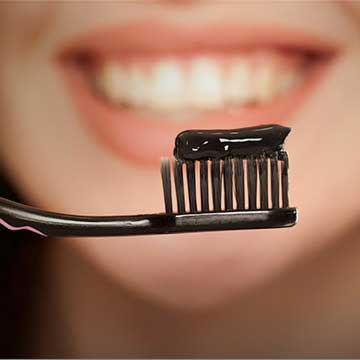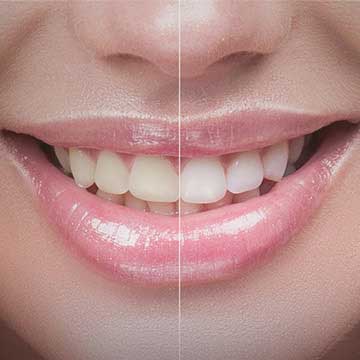
Poor dental health can have an impact on your overall health and quality of life. If you have sore and painful gums, tooth decay, or missing teeth, it can affect the way you chew and which foods you can comfortably eat. Bad breath, tooth decay, and plaque buildup can also lead to feelings of self-consciousness.
Good oral hygiene, both at home and at the dentist’s office, plays a vital role in your health and your happiness.
To help keep your mouth happy and healthy, you should be visiting your dentist for a full checkup and cleaning at least once every 6 months. These regular checkups can help prevent tooth decay and gum disease and are less invasive than having to have these problems addressed after the fact. To help keep your teeth and gums strong and healthy, your dentist may apply a fluoride treatment and suggest that you brush at home using a toothpaste that contains fluoride.
What Is Fluoride?
Fluoride is a naturally occurring mineral found in soil, water, and many foods and beverages. Though it occurs naturally, its concentration varies from region to region and water is the primary dietary source of naturally occurring fluoride. Fluoride is incorporated into the bones and teeth, making enamel harder and bone mineral more stable.
Some sources of fluoride include:
- Seafood, chicken, tea and grape juice
- Medical supplements
- Dental products such as fluoride toothpaste
Fluoride in Water
While fluoride occurs naturally in most sources of groundwater, the levels vary from low levels of less than 0.1mg/L to higher levels of over 4mg/L.
This process involves adding fluoride to the water supply to help prevent tooth decay and improve oral health. Health Canada recommends an optimal level of 0.7mg/L and a maximum acceptable concentration of 1.5mg/L and fluoride in drinking water.
To help ensure the residents of St. Albert consumes enough fluoride, our city council adds fluoride to our water supply.
Does Fluoride Have Any Harmful Side-Effects?
Fluoride has many benefits, however, if you consume too much fluoride you may experience side effects, such as dental fluorosis.
Dental Fluorosis
Dental fluorosis happens when an individual consumes too much fluoride during childhood when the teeth are still forming. This typically occurs when children brush their teeth without appropriate supervision and swallow their toothpaste instead of spitting it out.
Dental fluorosis can leave white or brown spots on the surface of the teeth but are usually not harmful.
To prevent dental fluorosis, parents should supervise their children carefully while they are brushing their teeth.
If you are concerned that your child may have dental fluorosis, please speak to your dentist. To help prevent dental fluorosis, make sure that you’re following the recommended guidelines for using dental products that contain fluoride.
If your child is too young to understand that they need to spit out their toothpaste, make sure you are only using a grain of rice sized amount. Once children are old enough to spit out their toothpaste, you should use a pea-sized amount.
Why Does My Dentist Use Fluoride?
Fluoride is a naturally occurring mineral that is beneficial for your bones and teeth when consumed in appropriate quantities. It is mainly used in dentistry to strengthen the tooth enamel (the outer layer of the teeth) and can help reverse the effects of early-stage tooth decay.
Fluoride can be consumed in 2 ways:
- Topical: This form of fluoride is applied directly to the tooth enamel, and includes fluoride toothpaste and mouth rinses. Drinking fluoride water is also beneficial topically when the water is in the mouth before it is swallowed.
- Systemic: This form of fluoride is swallowed, and includes both fluoridated water and fluoride supplements.
When you visit your dentist for a dental exam or other procedure, your dentist or dental hygienist will usually do a fluoride treatment as part of your visit. Fluoride treatments come in many forms, including as a gel, a rinsing solution, a foam, or a varnish.

To help ensure you gain the maximum benefit from the fluoride, you will likely be asked not to eat or rinse your mouth for at least 30 minutes after gels and rinses. This gives your tooth enamel a chance to fully absorb all of the fluoride. Patients can eat and drink foods after fluoride varnish as long as they are not too hot or crunchy.
Fluoride Prevents Tooth Decay
To help prevent tooth decay, most dentists include a fluoride treatment with each visit. These special, dentist-grade fluoride treatments contain higher levels of fluoride than most consumer-grade toothpastes.
There are a few things that increase your chances of developing tooth decay. These include:
- Poor oral hygiene
- High carbohydrate diet
- Consuming too many acidic foods and beverages
- Exposed root surfaces of teeth
- Tooth enamel defect
The more regularly you visit the dentist, the more likely problems such as tooth decay can be avoided or caught early on and treated promptly. Fluoride, along with brushing, flossing, and regular dental visits, all play vital roles in preventing tooth decay. According to the CDC, fluoridated water is responsible for a 25% on average reduction in tooth decay among both adults and children.
Fluoride also prevents tooth decay because the body incorporates it into the hydroxyapatite crystals within teeth, making them more resistant to acid attack. Fluoride also directly inhibits the bacteria that produce the acid that causes cavities.
Fluoride Strengthens Your Teeth
Another reason your dentist will likely include a fluoride treatment during your next visit is that when fluoride combines with the saliva in our mouths, it makes it easier for our bodies to keep our teeth healthy and fight bacteria-causing cavities that may form.
This happens because your saliva contains calcium and phosphate, and once it mixes with the fluoride from your toothpaste, it forms fluoroapatite, a compound that protects teeth against decay.
Fluoride Desensitizes Root Surfaces
High fluoride toothpastes and fluoride varnishes are also excellent treatments for exposed root surfaces in areas of gum recession.
The tremendous benefits of fluoride have led dentists to use this naturally occurring element to help keep their patient’s teeth and gums happy and healthy.








